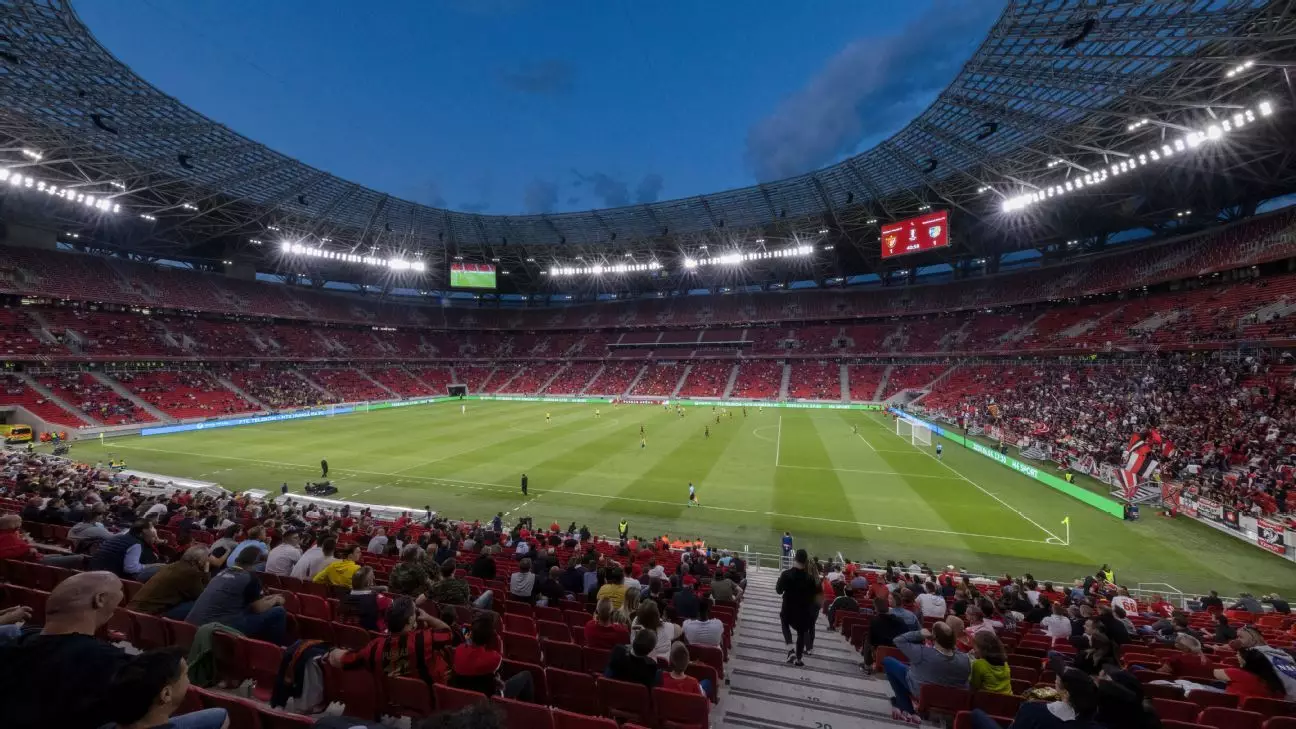In a surprising turn of events, UEFA announced Budapest as the host city for the men’s Champions League final in 2026. This decision came after much deliberation and consideration by the executive committee. Budapest’s Puskás Arena emerged as the chosen venue, beating out the competition from Milan’s San Siro. This selection brings the prestigious final to Hungary for the first time and highlights the growing popularity of football in Eastern Europe.
While Budapest celebrated its victory, Milan faced uncertainty regarding the fate of the iconic San Siro. The stadium, also known as Stadio Giuseppe Meazza, is owned by the city of Milan and shared by AC Milan and Inter Milan. Both clubs have been exploring options for new stadiums, leading to speculation about the future of San Siro. The decision to delay awarding the 2027 Champions League final to Milan reflects the ongoing discussions about potential refurbishment plans for the historic venue.
AC Milan and Inter Milan’s search for new homes has been complicated by financial issues. Inter Milan’s ownership recently changed hands due to debt repayment concerns, adding another layer of uncertainty to the situation. The delay in awarding the Champions League final to Milan underscores the need for clarity and stability in the Italian clubs’ future stadium arrangements.
In addition to selecting Budapest for the 2026 final, UEFA made several other strategic decisions regarding upcoming finals. Oslo, Norway, was chosen to host the 2026 Women’s Champions League final, highlighting UEFA’s commitment to promoting women’s football. Istanbul and Frankfurt were selected to host the Europa League finals in 2026 and 2027, respectively, showcasing UEFA’s efforts to bring the finals to diverse locations across Europe.
UEFA’s selection process for hosting finals reflects the organization’s efforts to balance tradition with innovation. By choosing Budapest over Milan for the 2026 Champions League final, UEFA has signaled a willingness to explore new venues and markets. The focus on sustainability and financial viability in stadium decisions underscores UEFA’s commitment to ensuring the long-term success of European football.
UEFA’s recent decisions regarding the hosting of future finals highlight the complex and multifaceted nature of European football. From Budapest’s surprise selection to the uncertainty surrounding Milan’s San Siro, the landscape of football in Europe is constantly evolving. By carefully considering the implications of these choices, UEFA can continue to shape the future of the sport for years to come.
